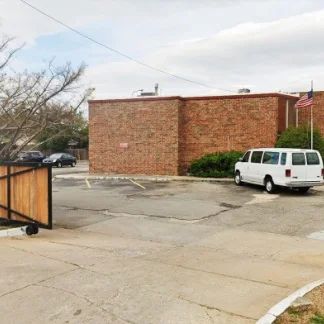Justin's Lighthouse
Justin's Lighthouse is a faith-based residential program for alcoholics and addi...
The Harbor is a drug and alcohol addiction rehab located in Oklahoma City. Harbor also provides effective co-occurring substance abuse treatment programs that heal addictions and ensure a long term life of sobriety.
The Harbor offers a broad spectrum of care options to help individuals struggling with addiction find their path to recovery.
The path to recovery begins with a thorough assessment and evaluation at Harbor. This process allows their team of experts to determine the specific needs of each individual and design a treatment plan tailored to those needs. This may include identifying any co-occurring mental health issues that may be contributing to the substance use disorder, as these will need to be addressed as part of a comprehensive treatment approach.
At Harbor, individuals can benefit from a comprehensive residential drug rehab program. This level of care provides 24 hour supervision in a supportive and structured environment, which can be crucial during the early stages of recovery. Residential treatment also allows for full immersion in the recovery process, with daily therapy sessions and opportunities for group interaction and peer support.
Recognizing the importance of a stable living situation in successful recovery, Harbor offers housing assistance as part of its comprehensive approach to addiction treatment. By helping individuals secure stable, safe, and substance free living environments, they support patients in maintaining their newfound sobriety in the long term.
Contact us for more information: (405) 943-2273

Connect with The Harbor by calling their admissions team directly.
(405) 943-2273 Website Get DirectionsExperiential therapy is a form of therapy in which clients are encouraged to surface and work through subconscious issues by engaging in real-time experiences. Experiential therapy departs from traditional talk therapy by involving the body, and having clients engage in activities, movements, and physical and emotional expression. This can involve role-play or using props (which can include other people). Experiential therapy can help people process trauma, memories, and emotion quickly, deeply, and in a lasting fashion, leading to substantial and impactful healing.
Group therapy is any therapeutic work that happens in a group (not one-on-one). There are a number of different group therapy modalities, including support groups, experiential therapy, psycho-education, and more. Group therapy involves treatment as well as processing interaction between group members.
In individual therapy, a patient meets one-on-one with a trained psychologist or counselor. Therapy is a pivotal part of effective substance abuse treatment, as it often covers root causes of addiction, including challenges faced by the patient in their social, family, and work/school life.
Nutrition therapy, aka medical nutrition therapy (MNT), is a way of treating physical, emotional, and medical conditions through diet. Specific dietary plans are designed by professional nutritionists or registered dietitians, and patients follow them in order to positively affect their physical and mental health.
Group therapy is any therapeutic work that happens in a group (not one-on-one). There are a number of different group therapy modalities, including support groups, experiential therapy, psycho-education, and more. Group therapy involves treatment as well as processing interaction between group members.
In individual therapy, a patient meets one-on-one with a trained psychologist or counselor. Therapy is a pivotal part of effective substance abuse treatment, as it often covers root causes of addiction, including challenges faced by the patient in their social, family, and work/school life.
Nutrition therapy, aka medical nutrition therapy (MNT), is a way of treating physical, emotional, and medical conditions through diet. Specific dietary plans are designed by professional nutritionists or registered dietitians, and patients follow them in order to positively affect their physical and mental health.
In individual therapy, a patient meets one-on-one with a trained psychologist or counselor. Therapy is a pivotal part of effective substance abuse treatment, as it often covers root causes of addiction, including challenges faced by the patient in their social, family, and work/school life.
Nutrition therapy, aka medical nutrition therapy (MNT), is a way of treating physical, emotional, and medical conditions through diet. Specific dietary plans are designed by professional nutritionists or registered dietitians, and patients follow them in order to positively affect their physical and mental health.
Nutrition therapy, aka medical nutrition therapy (MNT), is a way of treating physical, emotional, and medical conditions through diet. Specific dietary plans are designed by professional nutritionists or registered dietitians, and patients follow them in order to positively affect their physical and mental health.
Justin's Lighthouse is a faith-based residential program for alcoholics and addi...
Into Action Sober Living is a sober living rehab center for men in Oklahoma City...
City Rescue Mission, located in Oklahoma City, Oklahoma, provides direct service...
New Beginnings Counseling Services is a private rehab located in Oklahoma City, ...